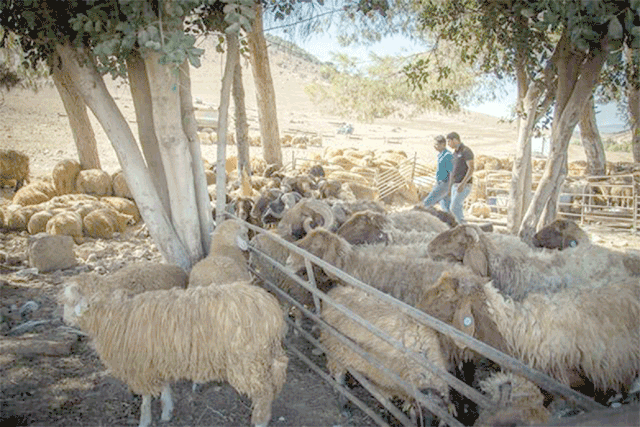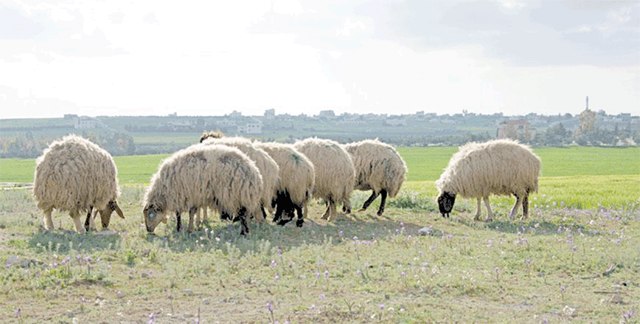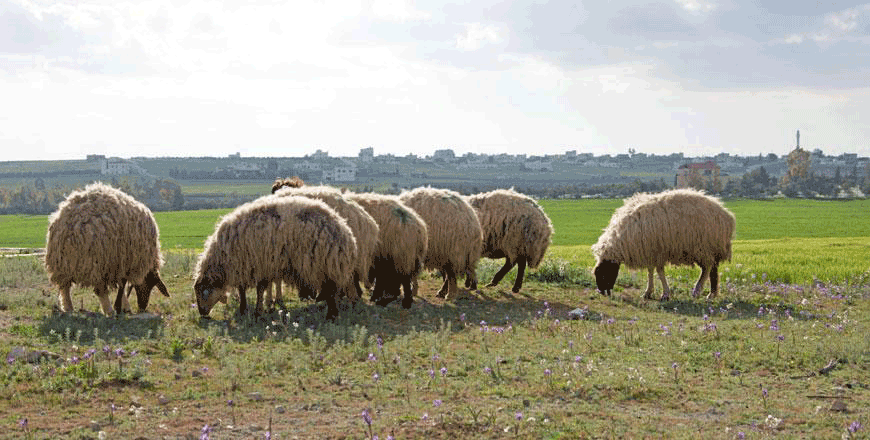You are here
Gov’t decision to suspend live sheep imports before Eid Al Adha draws mixed reactions
By Rayya Al Muheisen - May 21,2023 - Last updated at May 21,2023

Local livestock breeders anticipate that the decision will increase the prices of imported sheep and decrease the cost of local sheep (File photo)
AMMAN — The Agriculture Ministry’s decision to suspend live sheep imports before Eid Al Adha has triggered mixed reactions.
Lawrence Majali, Agriculture Ministry’s spokesperson, told The Jordan Times that Agriculture Minister Khalid Hneifat issued a decision on Thursday to suspend the licensing process for importing live sheep, as well as to halt any pending shipments of live sheep.
“The decision has been effective since Thursday May 19, until further notice,” Majali added.
Majali said that the decision aligns with the ministry’s objective to preserve local sheep industry, sustain the income of sheep breeders, and “fortify” the livestock sector. Moreover, the local market has sufficient quantities of imported sheep to meet the local market’s demands during the upcoming Eid Al Adha.
Eid Al Adha, also known as the Festival of Sacrifice, is a significant religious holiday celebrated by Muslims worldwide. One of the central rituals of Eid Al Adha is the sacrifice of animals, commonly sheep, goats, cows, or camels. Therefore, demand for livestock spikes before Eid Al Adha. This year Eid Al Adha is expected to be celebrated on June 28.
Local livestock breeders anticipate that the decision will increase the prices of imported sheep and decrease the cost of local sheep.
However, Majali stated that the ministry implemented this measure to “safeguard local products, mainly sheep, and ensure the sustainability of income for livestock breeders”.
Zaal Al Kawalit, president of the Livestock Breeders Association, told The Jordan Times that there will be contrasting price trends resulting from the decision.
He noted that the price of small-sized imported live Romanian sheep, previously sold between JD4 and JD4.5 per kilogramme, is likely to increase, while the cost of large-sized local sheep will remain steady. The selling price of small-sized live local sheep is expected to drop to JD5, said Kawalit.
Kawalit emphasised that the suspension of imports is “a step in the right direction” for livestock breeders, considering the surplus of livestock intended for export that is currently stranded within the country.
“Jordan exported 600,000 sheep valued at $200 million last year,” Kawalit added.
Kawalit highlighted the significance of this revenue stream in generating job opportunities and supporting the local economy. Therefore, efforts to resume exports are crucial, said Kawalit.
Ibrahim Bdour, a livestock breeder, told The Jordan Times that the decision to halt the import of sheep would lead to an increase in the price of imported meat and a decrease in the price of local meat due to the subsequent increase in supply.
“This will ultimately result in a reduction in the prices of local meat, which will negatively affect local breeders,” Bdour added.
Related Articles
AMMAN — The Kingdom exported around 60,000 sheep to the Gulf Cooperation Council (GCC) countries over the past eight days, said Head of the
AMMAN — The Kingdom has exported around 450,000 sheep to Gulf Cooperation Council (GCC) countries since the beginning of the year, sai
AMMAN — According to Head of the Livestock Breeders Association Zaal Kawalit, prices of imported meat have increased due to tight supply and














